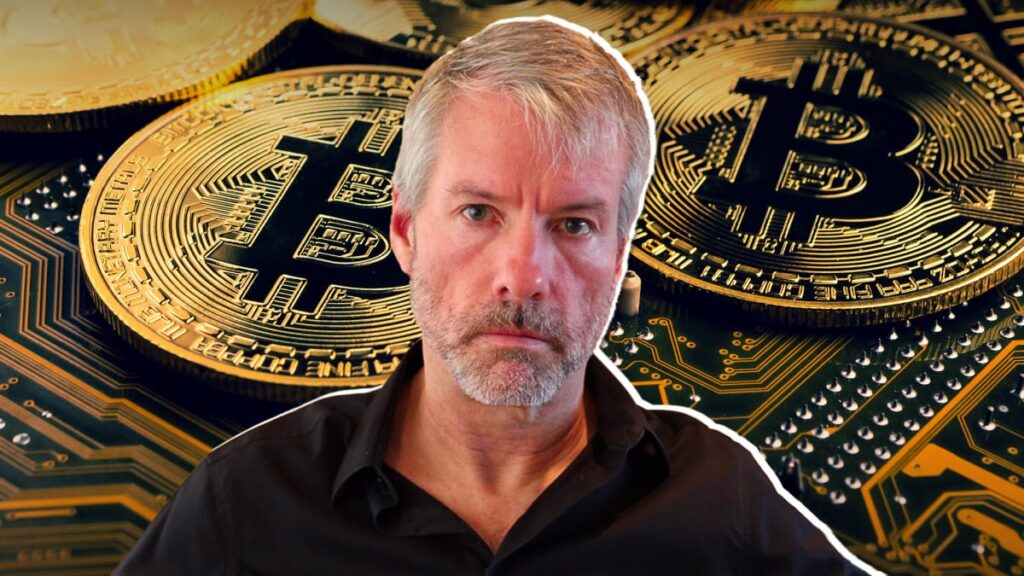Michael Saylor, the CEO of MicroStrategy, was among the first individuals to mark the 16th anniversary of Bitcoin Whitepaper Day.

Michael Saylor, the CEO of MicroStrategy, was among the first to commemorate the 16th anniversary of Bitcoin Whitepaper Day.
Saylor recognized the numerous benefits of this innovative work of art by expressing gratitude to Satoshi on his X profile.
Micheal Saylor Celebrates Bitcoin White Paper Day, Ignores Earnings Miss
Michael Saylor has been less concerned with Microstrategy’s quarterly results than was anticipated. Instead, he chose to commemorate the 16th anniversary of Bitcoin Whitepaper Day fittingly.
https://twitter.com/saylor/status/1851959963905568948
On X, Michael Saylor expressed his gratitude to Satoshi Nakamoto, the founder of Bitcoin. He shared a print screen photo of the MicroStrategy sales agreement, which indicates his intention to sell up to $21 billion in Class A common stock. The consortium of sales agents, including TD Securities (USA) LLC and Barclays Capital Inc., among others, will enable MicroStrategy to offer and sell shares on an “at the market” basis, as per the agreement formalized on October 30.
The “at the market” arrangement allows MicroStrategy to sell shares as required at the current market price. Sales agents will operate under the principle of commercially reasonable effort. The company can regulate the quantity and schedule of shares sold. It is not obligated to sell securities and may elect to deal with only one agent on any given day.
Bitcoin as the “Economic Energy” of Humanity
Michael Saylor is an unwavering supporter of Bitcoin and consistently commended the Bitcoin Whitepaper. As he always believed, cryptocurrency would be the next revolutionary innovation that would transform economies, much like fire, steel, and electricity.
In his opinion, Bitcoin is a form of money that is enduring, programmable, and mute. Simultaneously, he emphasizes that this is not a solution that would ultimately alleviate his issues or provide him joy. Instead, it could serve as a source of economic vitality.
Michael Saylor possesses a total of approximately 17,000 Bitcoins, which are valued at more than $1.1 billion. The largest corporate holder of Bitcoin in the world is his company, MicroStrategy, which has a value of more than $18 billion. He has recently advocated for Microsoft to incorporate Bitcoin into its portfolio, citing a 971% increase in the price of BTC over the past three years.
Every significant energy breakthrough continues to elicit a sense of awe and apprehension, frequently followed by paradigm-shifting events.
Saylor now believes that he was grossly underestimating the distinctive resilience of Bitcoin—the capacity to maintain it indefinitely without the presence of various hazards typically associated with trading institutions.
Bitcoin Whitepaper, happy birthday!
The enigmatic Satoshi Nakamoto published a nine-page document titled “Bitcoin: A Peer-to-Peer Electronic Cash System” on October 31, 2008.
It was a groundbreaking Bitcoin whitepaper that introduced an innovative electronic currency system that directly transfers digital payments from one user to another using the peer-to-peer network, eliminating the need for a financial intermediary.
Nakamoto delineated the concept of a decentralized currency utilizing blockchain technology in nine pages. This day was significant in the history of money and paved the way for the cryptocurrency revolution.
The whitepaper has transformed Bitcoin into an icon since its publication. It has established the foundation for an extensive cryptocurrency ecosystem. It pertains to innovation in various industries, including advanced digital identity verification and decentralized finance solutions.
Nakamoto’s whitepaper addressed the fundamental technical issue of “double-spending” by proposing a peer-to-peer system based on concepts such as Adam Back’s Hashcash.
This was accomplished by utilizing the current proof-of-work to verify Bitcoin transactions. Additionally, they would be documented on a secure decentralized ledger that a single central party does not control.
